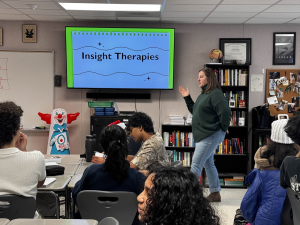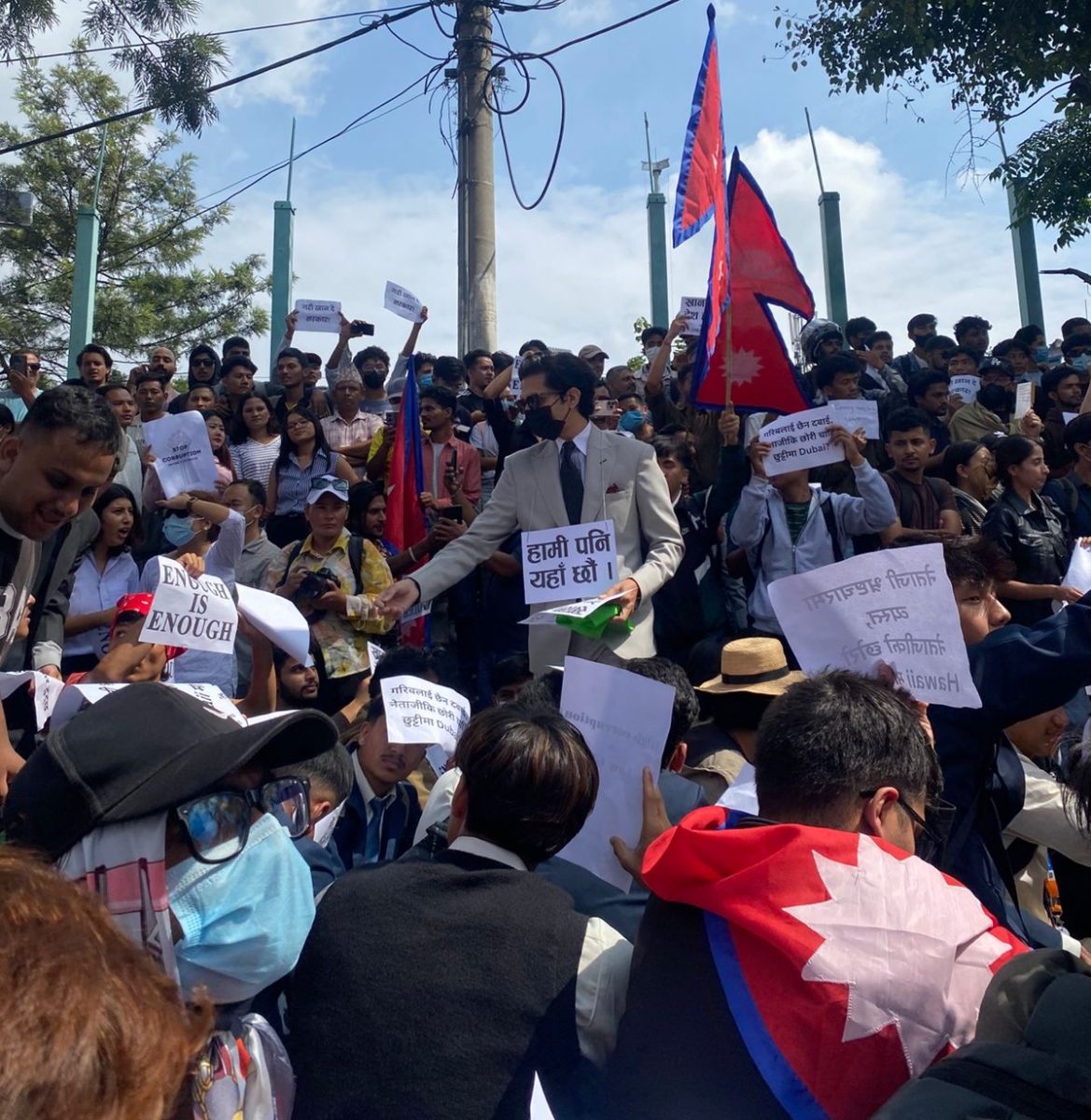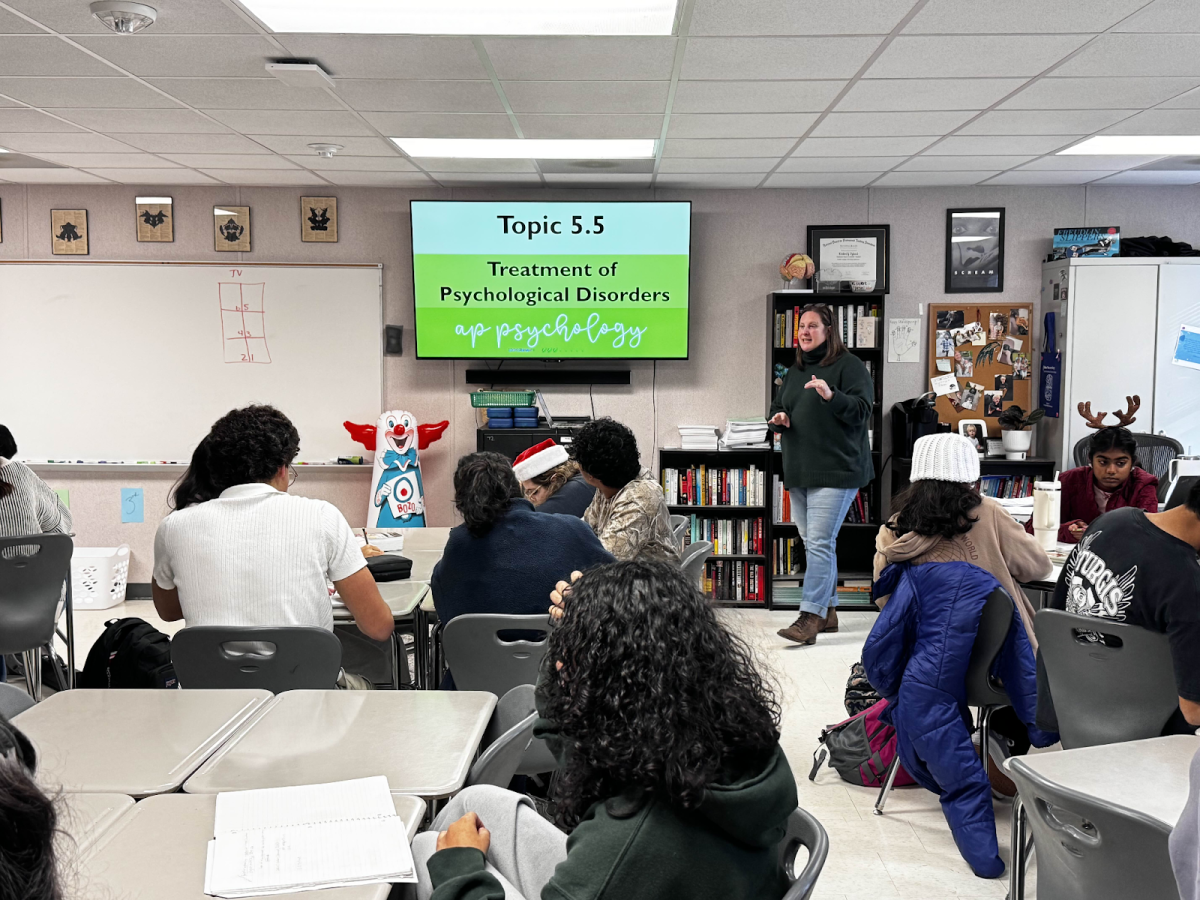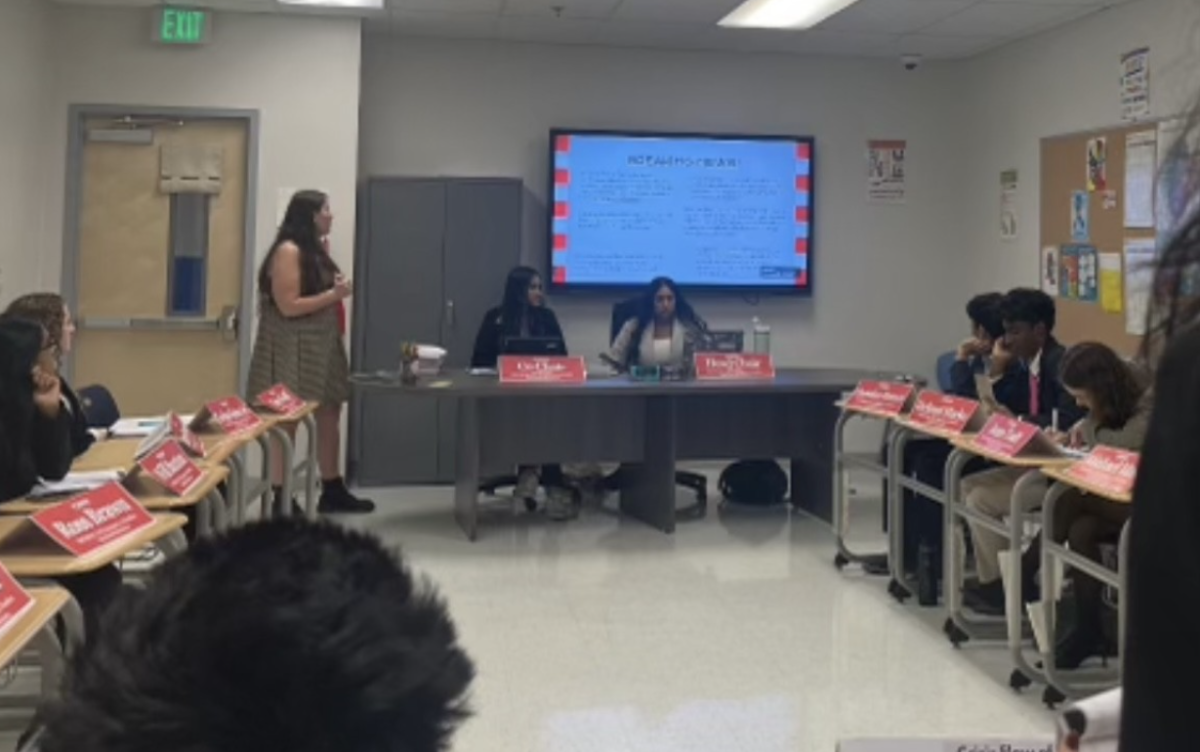Students constantly pose a multitude of questions to instructors at school, and it’s convenient to think that they always have the answers. Unbeknownst to most, it takes a strong individual to educate an educator when they might not know the answers to their students’ questions. Ms. Kimberly Pyland is up for the challenge, as she has spent her last three summers teaching workshops as one of 38 global College Board consultants for the Advanced Placement (AP) Psychology course, guiding educators around the world through teaching the class.
Ms. Pyland enjoys the opportunity to help teachers who are new to teaching AP Psychology understand how to best teach it. With a bachelor’s degree in psychology, Ms. Pyland believes that studying the motivations and influences on human behavior is both important and fascinating, and she enjoys introducing both students and educators to the content within the course. Ms. Pyland explains that the most difficult thing about teaching any AP course is the pacing. “We spend a lot of time developing calendars and then lesson plans and assessments,” she elaborates. Ms. Pyland states that her approach towards educating students and teachers is very similar, listing group instruction as her first approach towards instructing any audience.
Becoming an AP workshop consultant is no easy task. Ms. Pyland describes the interview process to become a consultant as an exhaustive series of applications and interviews, which consisted of tasks such as recordings of herself leading professional development for the teachers at Green Hope.
Through this experience, Ms. Pyland was able to achieve one of her professional goals of teaching abroad. “I have met so many wonderful people who have helped me to be well on my way to achieving my goal,” she recalls.

Although the experience is something that Ms. Pyland treasures beyond measure, after the restructuring of the AP Psychology curriculum this year, she had some difficulties over this past summer while working with educators and helping them prepare for teaching the class. “Workshop participants were expecting me to help them navigate the new course. Unfortunately, College Board is still building out the redesign, so there were a lot of questions I could not answer,” she acknowledged. As some teachers are required to attend these workshops by their school district’s decision, it is no surprise that the atmosphere can turn quite hostile. “It is not easy trying to teach teachers who are being made to attend these during their summer break,” she confessed.
While Ms. Pyland does plan on continuing to teach at Green Hope, she does see herself continuing to teach at workshops well into retirement. She even goes as far as to say that she would consider a full time position with College Board if given the opportunity.
Even while navigating the recent changes to the AP Psychology course, Ms. Pyland continues to dedicate her summer break to supporting other teachers around the globe to spread psychology education through classrooms.











































































